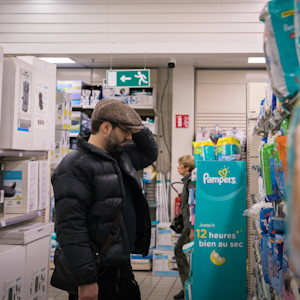Legal systems are complex. Their intricacies mean that legal document translation requires not just language fluency, but also domain expertise and an understanding of jurisdiction-specific laws and protocols.
Even small mistranslations of legal phrasing or concepts in translated documents can have grave consequences when translating high-value agreements like litigation materials, patents, or regulatory documents. We’re talking about consequences like hefty fines for regulatory non-compliance, nightmarish liability issues, failed negotiations, damage to your reputation, and more.
When dealing with such complex, high-stakes legal content, there is no margin for error. This is why it’s critical for many organizations to partner with a translation company that has proven legal translation expertise.
Assessing your internal translation capabilities
Especially if they have in-house linguists, localization managers sometimes wonder if they can handle legal document translation without bringing in a third-party translation provider. Three main questions can help you resolve that matter as you think about your own legal translation needs:
- Do you have qualified in-house translators? We’re not just talking about language skills here—legal translation requires expertise beyond that. Translators must understand legal terminology, formats, and concepts to convey the exact meaning of source documents.
- Do you have quality assurance (QA) resources? Quality assurance is crucial for legal translations to ensure complete accuracy across terminology, meaning, and other facets of translation quality. If you can’t ensure that every legal translation will get a thorough review, you need the help of a legal translation company that can mitigate potential liabilities resulting from inaccurate translations.
- Do you have the tools for secure and accurate translation? Your legal documents, which contain sensitive information, must be stored and transmitted securely. You need tools that enable the production of accurate translations and keep your data protected in the process. For example, Smartling holds numerous compliance certifications ranging from SOC2 to HIPAA to keep sensitive info protected no matter whether customers use our translation proxy, our CAT tool, or any of our other products.
If you answered “no” to any of the questions above, you should definitely be looking into legal document translation services.
What to ask before hiring a translation company for legal translation
Unsurprisingly, there are dozens of translation companies vying for your business, which can make your job of vetting them tougher. To help you more easily narrow down your top options, we’ve put together a list of seven questions to ask any company you’re considering to assist with legal document translation.
Do you specialize in legal document translation?
When it comes to legal documents, you don’t want a translation company that claims to be a jack-of-all-trades. Such companies are less likely to understand the nuances of legal translation and what’s at stake if inaccuracies are present than a company like Smartling, which specializes in translation for legal teams.
You should be looking for two things to start with. The first is specialized linguists since regulations and language can vary greatly across regions. You want translators who understand local regulations and the linguistic nuances of your target language and country.
The second is linguists with subject matter or domain expertise. Expertise in your domain, such as patents or contracts, allows precise translation of industry-specific concepts and mitigates inaccuracies.
Do you offer certified translation services?
Certified translation is required for many official documents. In other words, translators must certify that they are qualified and have translated your documents accurately and completely to the best of their ability. Some translation companies, however, only offer standard translation. It’s better to opt for one that offers both standard and certified translation, so you don’t have to search for and manage relationships with two companies. What are your information security provisions?
The translation of legal documents, which are often highly sensitive, requires stringent security practices. Neglecting to assess the security protocols of a translation company you hire for this work puts critical intellectual property, contracts, litigation materials, or other privileged information at risk of exposure.
What should you vet providers on? Whether or not they have end-to-end encryption, role-based access limitations, and enterprise-grade network security to prevent unauthorized access and data breaches. Also, look for rigorous compliance with security standards such as SOC 2 and HIPAA. It’s a plus if you can request that linguists and other staff sign non-disclosure agreements that outline confidentiality responsibilities for your materials.
What are your quality assurance protocols for legal document translation?
For your translations to be legally defensible, the translation provider you work with must have robust quality assurance (QA) practices. That includes all of the following:
- Ways to ensure proper stylistic and terminological usage per your internal style guide and glossary
- Use of translation memory tools to maintain consistency across documents and keep to brand standards
- ISO certifications for reassurance that the company you’re considering sticks to well-defined quality control processes
For example, Smartling’s native-speaking translators use our best-in-class AI-powered translation technology to ensure translation quality. This tech includes automated and customizable QA checks that scan for glossary adherence, terminological consistency, and more. Our linguists also leverage your translation memories, style guide, and other linguistic assets, which is a crucial part of what allows us to stand by our 100% quality guarantee.
Can you handle and scale capacity for large projects?
Whether you have extensive legal document translation needs now or will have them in the future, you must be sure the company you choose can keep up without allowing quality standards to drop.
You’ll want a service provider with project management experience at the enterprise level and a track record of excellence despite high volume and complexity. Customer reviews are invaluable for getting an understanding of a company’s capabilities, as are case studies. (Our AdRoll case study shows how the company leveraged Managed Services to launch its website in seven languages in under two weeks.)
Typically, the companies that are the most reliable and scalable are those that invest heavily in emerging technologies like artificial intelligence to improve efficiency, aid in managing translation costs, and even assist with quality assurance. For instance, the Neural Machine Translation Hub allows instant translation of millions—even billions—of words, while also producing up to 350% higher quality translations than a single machine translation engine.
Then, there’s the matter of translator availability. In other words, does the provider you’re considering have enough translators available who specialize in the language pairs you need and complete translations at the pace you need? Not only is this worth asking about but you should also think ahead to language pairs you will need in the near future.
How responsive is your customer success team?
Expert customer support is crucial when dealing with high-stakes legal translations to ensure needs are met efficiently and effectively. And the larger and more complex a project is, the more it matters—don’t forget to assess vendors' commitment to customer service.
They should offer multiple contact channels that facilitate ongoing communication about project timelines and any issues or questions that arise. They should also offer fast or even guaranteed response times, and have procedures in place for escalating and resolving complex issues quickly.
How much does it cost to translate a legal document?
Translation costs can vary based on document length, language pair, the urgency of the translation, the complexity of the content, and whether certified translation is required or not. But prices typically range from $0.10 to $0.25 per word. While you may come across companies who use the per-page pricing structure, the cost often lands in that per-word range.
What is the best translation service for legal documents? To recap, we identified seven major factors worth considering when vetting a translation provider for your legal documents:
- Specialization in the legal field and domain expertise
- Availability of certified legal translations
- Information security
- Rigorous quality assurance
- Ability to translate legal documents at scale
- Customer success responsiveness
- Cost
Smartling covers all of the above bases. Among other translation services tailored mainly for enterprises, we offer specialized translation for legal documents. These translations are completed and checked for quality by native-speaking linguists with legal and domain expertise and access to our top-rated enterprise translation management system (TMS).
The TMS not only enables translation and quality control at scale but also helps customers reduce translation costs via features like translation memory. Plus, whether or not customers opt for complete, white-glove management of their translation projects, our customer success team is there to support them every step of the way.
Of course, the above is just a high-level description of the gains to be had if you choose to work with a translation provider like Smartling. For more on what translation services entail, how they create efficiencies for businesses like yours, and where to start as far as working with translation providers, check out The Complete Guide to Translation Services. It’s free to download!








